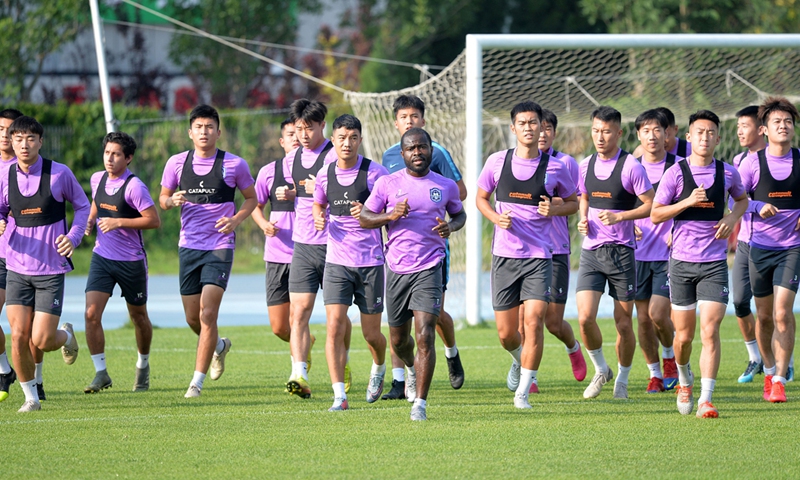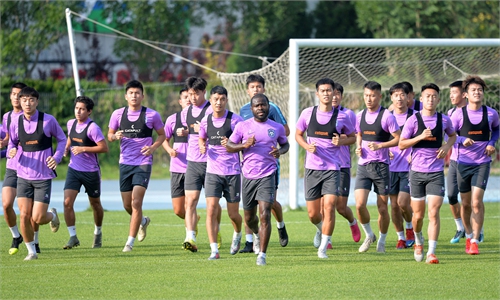SOURCE / INDUSTRIES
Sports world slowly gets back to normal as e-training thrives

Players of Chinese Super League side Tianjin Teda take part in a training session on Tuesday in Tianjin. Photo: VCG
The 2020 season of the Chinese Super League (CSL) is scheduled to start on July 25, the Chinese Football Association (CFA) announced on Wednesday, with the games to be played in Suzhou, East China's Jiangsu Province and Dalian, Northeast China's Liaoning Province.
"To satisfy people's eager anticipation for the restoration of the CSL, the CFA decided that the 2020 CSL will be held on July 25 in Suzhou and Dalian," the CFA said in a statement on Wednesday. The CFA will do its utmost to ensure the safety of the games and strictly abide by national epidemic prevention requirements, it said.
The CSL is not the first domestic sports league to return to competition as the outbreak eases in most regions of China. The basketball league Chinese Basketball Association resumed on June 20.
However, the domestic sports industry is still not back to normal, especially in Beijing, amid pressure to prevent a second wave of the coronavirus outbreak.
Chinese figure skater Chen Lu told the Global Times on Wednesday that the skating center she founded in Beijing is about 50-percent occupied in terms of the number of learners, with more at the weekends.
"We reopened in early May, but many of our foreign coaches from Canada and Russia couldn't make it back because of the deteriorating situation overseas. To prevent the spread of the coronavirus, we also reduced our opening hours by about one-third," Chen said, noting that the plan to build a skating center in Shenzhen, South China's Guangdong Province has also been delayed.
Zhu He, founder of Beijing-based gym Yiji Tineng, said his gym's usage has been at the same level since it reopened at the end of May.
"During the coronavirus outbreak, we ramped up efforts to develop online training. I believe the whole industry's confidence will revive after the outbreak stabilizes domestically," he said.
In contrast, online sports surged amid the outbreak. Xiong Mingjun, founder of the Beijing-based internet yoga brand Wake, told the Global Times that his company's cash flow in the first half of the year was about 6-fold the level before the global pandemic.
"The closure of yoga studios pushed users to accept online yoga training," Xiong said, noting that the number of active users doubled during the period.
As part of a move to boost the night economy, Wenzhou in East China's Zhejiang Province recently announced plans to grant incentives of up to 700,000 yuan ($99,120) to companies that organize large-scale sports events like bowling matches.




